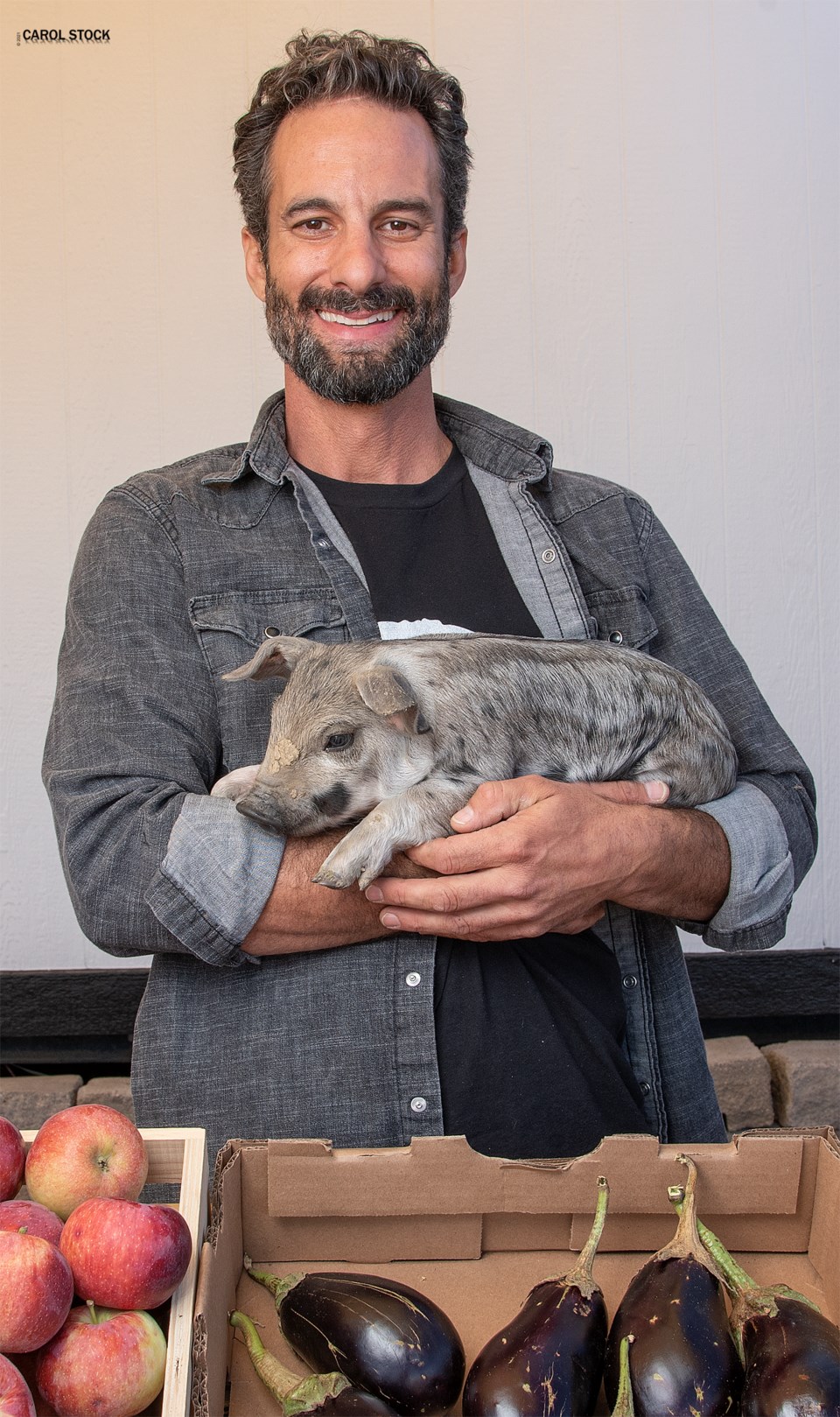Longmont’s John Scaggs and his stable of heritage pigs are dipping their toes into Colorado’s $64 million agritourism business, which covers everything from hay rides to horseback riding to weddings or corn mazes.
Scaggs is hoping his exotic line of pigs will soon pave the way for events where private chefs cook for families and a greenhouse from which he can sell peppers, tomatoes and other crops under the umbrella of his Lazy J farm near Niwot.
“I now think my path is events,” said Scaggs, a New Jersey native who holds a master’s degree in hospitality investments from New York University. He began working in agritourism in Colorado when in 2004 he became head of sales and marketing for Haystack Mountain Cheese.
Scaggs said he sees the value of mixing business skills with being a specialist in raising healthy, hybrid pigs for market. “I think there is a market for trying to deepen the connection to the animal and the customer,” Scaggs said. “You can do that through agritourism.”
The last United States Department of Agriculture Census in 2017 indicated that 1,056 Colorado farms offered agritourism and recreation services, totaling nearly $64 million in farm income, according to the Colorado Department of Agriculture website.
Agritourism can take place on the farm or ranch, including cattle round ups, family reunions or just painting wildlife, the CDA website states.
Agritourism can also be food-based and promote wine tastings and brewery visits. Heritage activities like barn dances, hoe downs or rodeos, also fall under agritourism, the CDA states.
Farmers can decide if agritourism is a side business or the main source of income, the CDA states.
“It is important for you, as a farmer or rancher, to realize that agritourism has the potential to become whatever you want it to be on your operation,” the CDA states. “Whether you use agritourism as a supplementary, complementary or primary enterprise, you must be ready to think creatively and plan effectively in order for your new enterprise to be successful.”
Scaggs erected a pup tent in September off the side of 7656 Mineral Road in Niwot to sell his frozen pork as well as lamb and beef, fresh fruits and vegetables from local farmers. Scaggs admits it got minimal attention and his marketing was small-scale.
“We put up signs along the road but the wind kept blowing them down,” said Scaggs. He decided to take his promotion game up a notch by going whole-hog on Halloween.
His friends, photographer Carol Stock and Michelle Bertholf, “convinced me to go all in,” Scaggs said.
Scaggs hit social media to market an afternoon party which included Stock setting up a photo booth for families to get pictures with the farm’s Mangalitsa piglets. Customers also enjoyed a brick oven pizza and Italian pork sandwiches by Boulder chef Antonio Laudisio, Scaggs said.
Berthoff helped at the stand and sold beef, lamb bundles and craft pantry provisions. “It went pretty well and I think people had a pretty good time,” Scaggs said. “And I think it sets a future course for me, something a little bit bigger.”
Scaggs came to Colorado in 2004 to do feasibility work in hotels but the financial crash of 2008 sent him scrambling for a new line of work.
A friend pointed him to Haystack Mountain Cheese where he shaped a career in marketing agriculture products. He eventually got interested in raising his own livestock. He first settled on goats and then chickens but eventually he was sold on pigs because of their hardiness .
This happened after four of his chickens were killed by a racoon. “Pigs don’t wake up and need milking,” Scaggs said. “And I decided I never wanted another critter who couldn’t defend itself.”
The core of his 100 or so head of pigs is the Mangalitsa breed, which is from Hungary and handles cold weather well, Scaggs said.
The pigs enjoy locally grown barley, alfalfa and millet, grown by close friends. The pigs live a free-range, low stress lifestyle in a “comfortable outdoor setting,” the Lazy J website states.
Scaggs said he is a “farrow-to-finish” producer which means all market pigs are born on-site from his breeding stock and he raises the animals from piglets to market weight for one year. That is nearly twice the standard production for pork, he said.
“I want my pigs to be living in a low-stress environment as possible,” Scaggs said. “They deserve that for what they are going to be giving us.”
“I would like to think,” Scaggs said, “that when I die, I want to come back as one of my pigs.”
.



